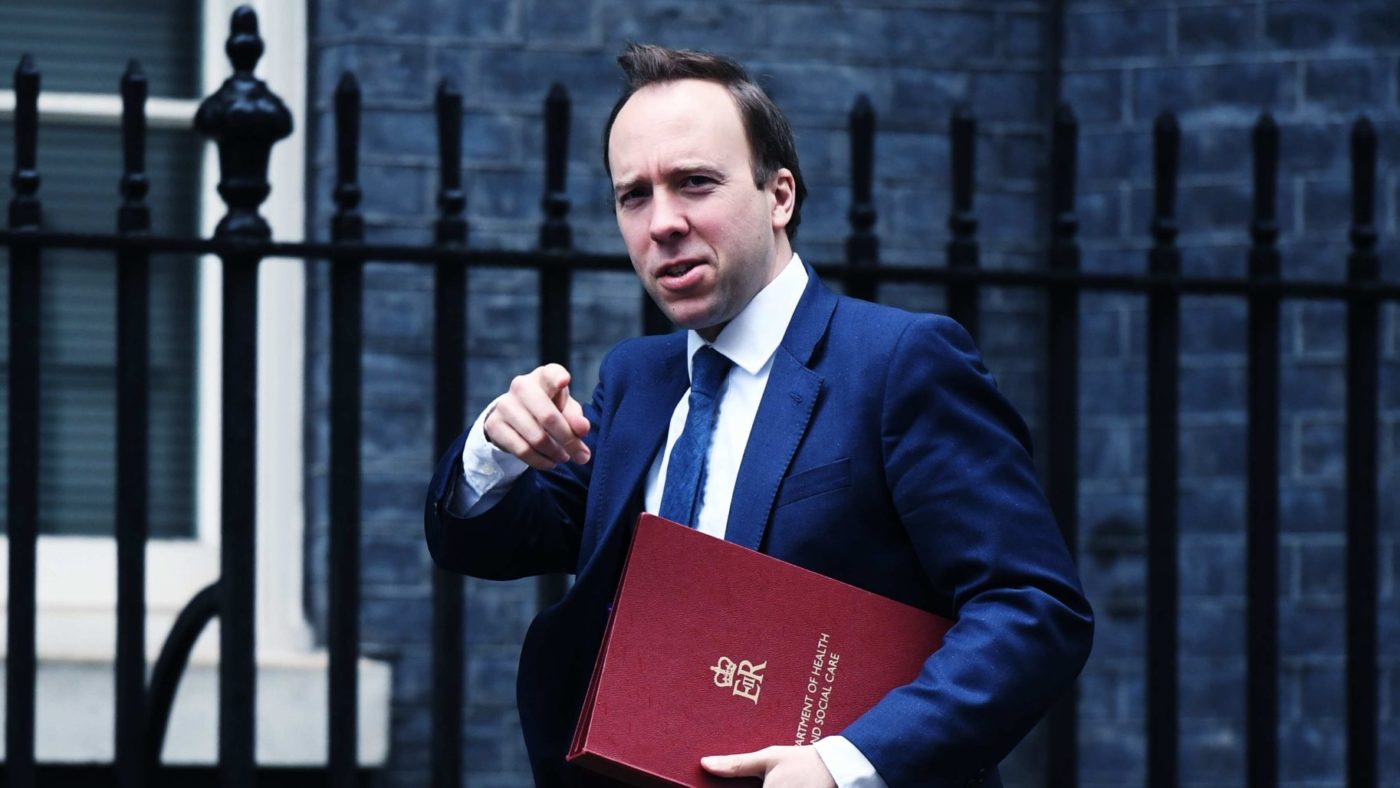The Government has finally read the writing on the wall for Public Health England (PHE). According to reports, the failing public health body will be abolished and its role preparing for pandemics moved to a new National Institute for Health Protection.
PHE’s only unmitigated success has been drawing ire from both the left and the right. Its enduring legacy will be the highest COVID-19 death toll in Europe. As Sir Iain Duncan Smith neatly (if rather bluntly) put it, ‘everything PHE has touched, has failed’. This is hardly hyperbolic.
It failed to scale up testing quickly enough, rebuffing support offered by university and private labs. As a result, its diagnostic testing programme was haphazard and devoid of scientific rigour. It is understandable that ministers found working with PHE a Sisyphean task, given reports that at one point a minister was calling round and attempting to collate testing data themselves by hand. More recently, the death statistics were revised down following the revelations they had been incorrectly tallied by PHE.
One look at PHE’s ‘about us’ page will tell you that it was more interested in saving you from an extra helping of dessert than a pandemic. Despite claims about public health austerity, in fact, as the IEA’s Christopher Snowdon has pointed out, PHE’s infectious diseases spending increased over the last five years. They just choose to make that only 2% of total public health spending. Twice as much was spent on obesity. The issue is priorities.
And while it is welcome news that it is getting reformed into a new body, the Government must ensure that this is about more than just desserts for PHE. Indeed, it was only seven years ago that PHE was set up as part of the Lansley reforms, with the intention of shifting responsibility for public health back to local councils.
The results are all too plain to see. During a crisis, responsibility accumulates around the competent. It is thus unsurprising that PHE’s remit has slowly but surely been whittled down, with the ONS leading on serological studies as to how widespread COVID is, and the Office for Life Sciences leading the push for a big ramp up in testing capacity.
Public Health England failed because it is overly centralised, dogmatically bureaucratic and above all, with too much on its plate. For its successor to succeed, it must be less bloated, more nimble and mission focused. It must be open to collaboration, both inter-governmentally and with the private sector. It must not be the same failed PHE management given new titles and branding.
Successive governments have promised to take on quangocracy, usually with little success. But this government has staked its electoral credibility on shaking things up, on obliterating bureaucratic mediocrity in the name of unleashing Britain’s potential.
There are some positive early signs. The National Institute for Health Protection is said to be inspired by the Robert Koch Institute, which played a pivotal role in Germany’s robust response to the pandemic. While PHE floundered, Germany forged ahead with a highly decentralised test and trace programme that drew on the private labs and universities from the get go. Where PHE was supposed to draw on local expertise in testing and tracing of other infectious diseases itfailed to do so.
In his Ditchley Lecture earlier this year, Michael Gove stated that institutions must ‘prove that the regulations and agencies we have established have made clear, demonstrable, measurable improvements to the lives of others’. Perhaps most tellingly, he cited FDR in suggesting ‘it is common sense to take a method and try it. If it fails, admit it frankly and try another’. He concludes that government interventions must have verifiable benefits ‘in a way our fellow citizens can recognise, appreciate’.
The Conservatives are justified in abolishing PHE, but it shouldn’t only be because it is politically convenient to do so. PHE’s broad remit meant it was caught between prioritising petty food policing campaigns and coordinating Britain’s response to a pandemic. The former is easy, if facile and mundane. The latter is vital state capacity.
So on one hand it is good to see the Government pushing for a more decentralised, more focused approach to protection against pandemics. On the other it is disheartening to see it take up the mantle of banal nanny statism in its mad plan to ban so called unhealthy foods before the 9pm watershed. Quite how preventing people from seeing, among other things, English mustard and Marmite on television will make an appreciable difference is hard to see.
Furthermore, it is not just PHE that failed during this pandemic. There are serious questions about the Government’s overall strategic vision and the Department’s inability to successfully undertake testing and contact tracing even after taking over from PHE. We must not allow this one organisation to become a scapegoat and excuse for not improving other parts of government.
The lesson of this entire fiasco is that public health strategy must be rigorously disciplined in prioritising saving lives and livelihoods. We can have the best of both worlds: if PHE had not initially screwed up testing and tracing perhaps we could have limited case numbers, emulating South Korea and not needing a nationwide lockdown.
Public health must not be distracted by condescending campaigns or be bogged down in bureaucratic fiefdoms. Playing musical chairs with which institutions pursue ineffective policy directives will just land the Government back in 2013; appointing a new public health body committed in name only.
Click here to subscribe to our daily briefing – the best pieces from CapX and across the web.
CapX depends on the generosity of its readers. If you value what we do, please consider making a donation.


